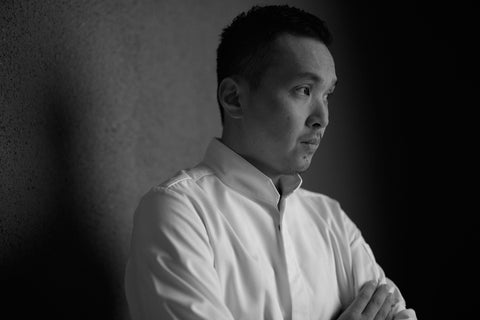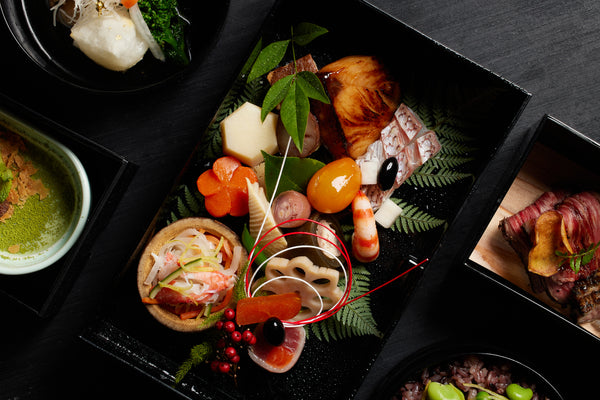
Modern Take on Traditional Japanese Cuisine | HIROKI ODO 大堂浩樹
The Fusion of Art and Food
HIROKI ODO (大堂浩樹) was born in Kagoshima Prefecture, Japan. After training at Kyoto Wakuden, he participated in the launch of Yakumo Saryo in Tokyo. In 2012, Odo moved to New York and won a Michelin Star as the head chef at Kajitsu, the first restaurant to introduce authentic Shojin Cuisine (a type of vegetarian cooking that originates in Zen Buddhism) in the U.S. In 2016, Odo became independent. In 2016, he opened his eponymous restaurant Odo, featuring a contemporary approach to kaiseki cuisine, and "Hall", featuring creative cocktails and a hamburger menu. Odo was honored with a Michelin Star two years in a row.
In 2020, in the midst of the pandemic, Odo launched Muse, a sushi delivery service. His most recent vision, THE GALLERY, opened in 2021 as the latest concept of the fusion of art and food. Currently, Odo’s company operates all four of these establishments in Manhattan.

IROHA: Please tell us about your current projects, recent developments that you would like to highlight, and future plans.
HIROKIi: THE GALLERY opened in 2021 in New York, the epicenter of creativity. My desire was to create a space to present a project that fused art and food culture. I hope that the space will grow into a venue where creators from diverse backgrounds can interact with each other and visitors can find new inspiration. As a place of intersection of various arts and culture, THE GALLERY's main mission is to become an exciting venue to showcase works of diverse artists, including those from Japan, who inspired me and my food. Through exhibits and events, I want to explore what I can offer to society while creating new values and presenting a lifestyle that is unique and interesting.
IROHA: What is your opinion regarding how Japanese people share and celebrate their culture around the world?
HIROKI: Japanese people may be known for their creativity, manufacturing and engineering expertise but they are not very skilled in communicating their knowledge and expertise outside Japan. I always think about how to convey my message and ideas beyond the Japanese boundary, how to make things better, and the legacy I can leave for the future.
Japanese and Asian people, as a minority, have their own unique perspectives and identities within the US culture. I think collaboration based on mutual respect will be essential to address a social issue such as Asian hate. Through the fusion of food and the arts, I hope to advance mutual understanding and equality among us and beyond.

IROHA: Based on your experience, what advice or message would you give to young people who want to be active in the world?
HIROKI: This is our corporate social responsibility question, and I would like us to all to explore it. I often question our raison d’être — what can we do to create value for society? What can we offer? To question the reason of our existence presents a challenge every day because we live in a world that is constantly changing and always evolving. To stay relevant in this quickly changing world is more challenging than ever but also exciting.

IROHA: Outside of work, what interests you most right now?
HIROKI: I have been practicing meditation. Mr. Masaki Matsubara, a Zen monk, scholar of religion, and visiting professor at the University of Tokyo's Interfaculty Initiative in Information Studies, designed a meditation program for my team. Facing oneself may be what is most needed today.
